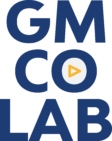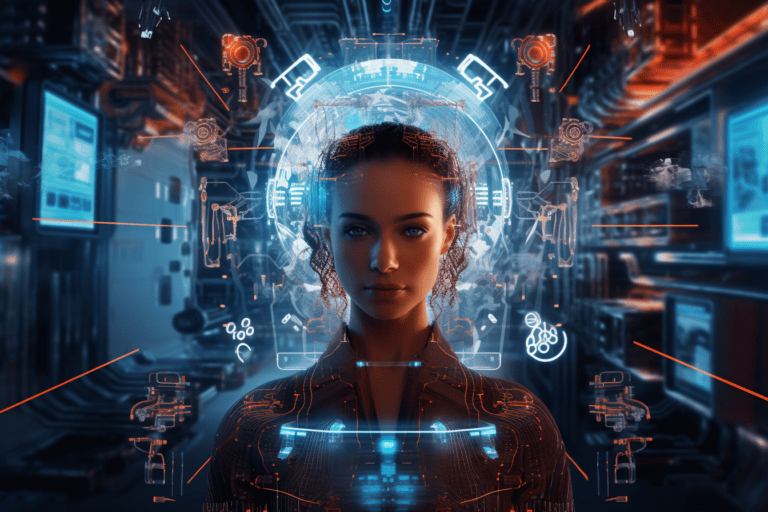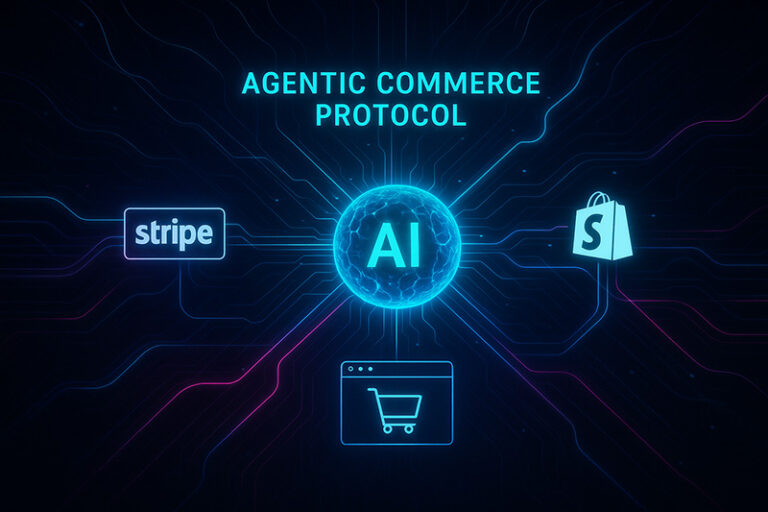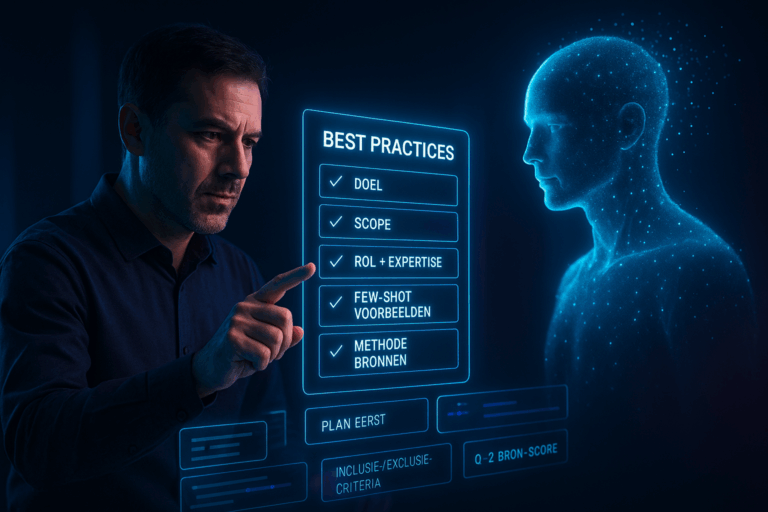AI-Driven Software For Human Resources Management
By Gabriel Mattys | FEBRUARY 24, 2023
AI is rapidly becoming a part of our daily activities. The recruitment sector is not an exception.
Would you agree to be interviewed by AI software?
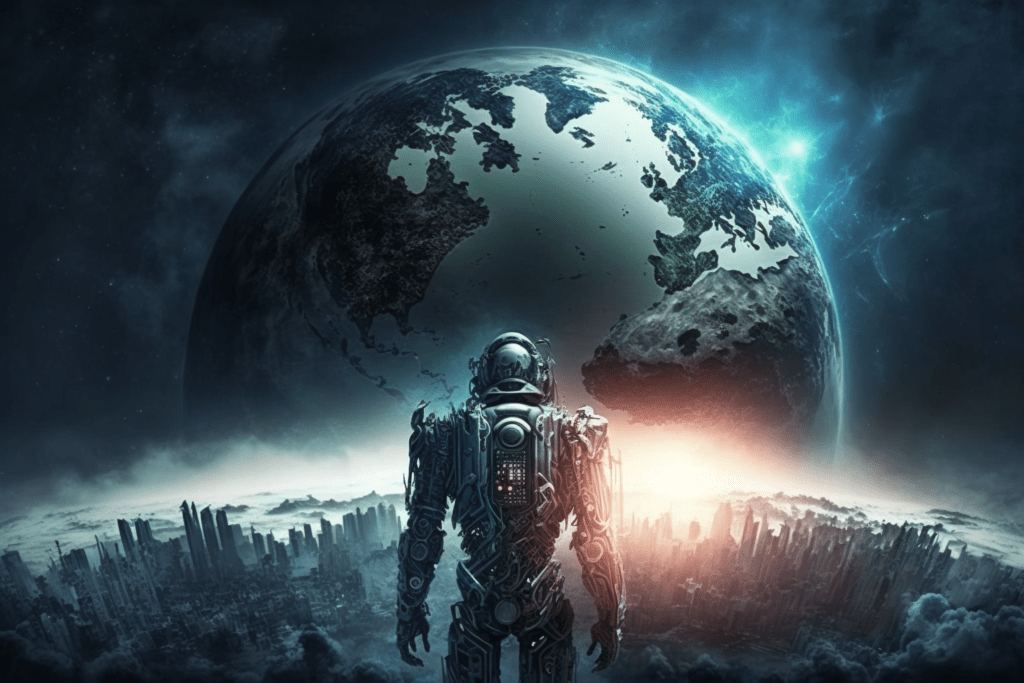
Artificial intelligence has the potential to dramatically change the HR industry. According to the research conducted by Research and Market, the share of the Global Artificial Intelligence in the HR Market is forecasted to grow from USD 3.89 Bn in 2022 to USD 17.61 Bn by 2027, growing at a CAGR of 35.26%. Companies are likely to prioritize investments in AI to optimize business processes and reduce costs.
As a business leader or HR professional, you have likely already noticed the ongoing rise of AI technology in our workplaces. AI is revolutionizing the recruitment process and making it faster, more efficient, and more effective than ever before. From sourcing talented candidates to simplifying the onboarding experience, modern recruiting teams are leveraging the power of Artificial Intelligence for recruiting success. In this article we will explore the opportunities that AI unlocks for a successful recruitment process, highlighting some AI-powered tools available to Human Resources teams today.
Let’s start!
How Artificial Intelligence Is Used In HR?
Human resources (HR) departments have been increasingly making use of artificial intelligence (AI) technology over the past few years, as they look to create more efficient and effective solutions to the usual problems HR faces.
The following are ways that you can expect to see AI impact HR.
- Automation of various tasks.
AI has allowed for the automation of administrative tasks such as parsing CVs, setting reminders, providing data, and tracking key HR metrics.
- Recruiting and onboarding
Recruiting efforts will also be boosted with the help of AI-driven Applicant Tracking Systems (ATS) that are equipped with natural language processing capabilities, which save time and ensure fewer errors when it comes to selecting eligible candidates.
- Engagement
Lastly, since AI enables companies to identify and hire an employee that matches an open role it is necessary to help him/her integrate into the company’s workflow. AI enables companies to get reliable insights into employee engagement feedback as well as trends in company culture. This is meant to help boost the company’s retention.
Benefits And Use Cases Of AI Recruiting Software
Human resources teams receive multiple resumes for one highly desirable corporate job opening. Every candidate’s resume needs to be analyzed and sorted out by the hiring manager. Other times we might receive CVs that are not exactly what we need. Could we train some of these people to fill in the vacancy?
AI can be a great add-on for every step of the candidate screening process.
Here are a few examples of how HR teams could benefit from using AI-powered tools.
- Powerful AI systems help screen and evaluate resumes, saving recruiters time when making sure a candidate fits within the criteria for a role.
- During the pre-screening stage HR managers can set up video interviews to get insights into a candidate’s characteristics and personality. Additionally, tech screening can be used to assess practical skills through a range of methods.
- AI can automate sourcing across multiple databases, simplifying the search process for employers and returning efficient lists of possible candidates with recommended levels of suitability. AI advances ATS capabilities and can reach out to qualified potential applicants even if they did not fit the position before due to specific circumstances that have since changed.
- Hiring processes can further be streamlined by using AI to automate scheduling tasks between different stages while allowing managers to keep an eye on all interviews happening in real-time.
- Cut off human biases. It can potentially reduce human bias in hiring decisions by removing tendencies that could favor certain individuals over others. Eliminating human biases in hiring decisions is a challenging yet critical task. Doing so can help to make sure that the most suitable applicants are given the opportunity to move forward in the recruitment process.
- Boost learning. With the increased use of AI in the hiring process, potential employees can receive tailored feedback to help them reach their best performance. After releasing a job announcement, companies can take advantage of AI to better recognize and analyze an applicant’s personal data which helps define their strong and weak sides. Further, AI can offer actionable advice candidates can use both during the hiring process and beyond. Moreover, managers can also use AI-enabled systems to provide personalized coaching to improve employee performance – something which was formerly a difficult task on its own. This combination of machine learning capabilities and human expertise can result in a far more effective way of managing successful employees’ growth.
- Improving data analytics. AI is also helping with improved workforce data and analytics so that companies get a deeper understanding of their broader corporate landscape.
Together, these advantages show how leveraging AI in your hiring strategy leads to huge time savings as well as greater accuracy in finding the right applicant for any role.
Pitfalls You Need To Be Aware Of
Every technology has its strong and weak sides. AI recruiting tools are not an exception and also have their downsides and dangers.
- One of the main drawbacks to using AI in the recruitment process is that it cannot work without human-agent supervision. AI is simply an exoskeleton for human beings. When it goes about decision making it requires a human to guide it and explain its decisions.
- AI learns from the data we feed it. Therefore, if an AI recruitment tool was trained on biased data it will act accordingly. Therefore, high-quality training data is crucial in order to develop an accurate and high-level performance tool. In this case, human sanity-check interventions may be necessary when rolling out new technologies.
- AI lacks the capability to understand a person beyond what is written in a resume. As a result, companies might miss potentially good candidates. Hence, human-to-human interaction remains critical during recruitment processes.
Follow me on socials and stay updated with the latest technology news!
You might also like
AI-Driven Software For Human Resources Management
AI is rapidly becoming a part of our daily activities. The recruitment sector is not an exception.
Would you agree to be interviewed by AI software?
BY GABRIEL MATTYS
FEBRUARY 24, 2023
Artificial intelligence has the potential to dramatically change the HR industry. According to the research conducted by Research and Market, the share of the Global Artificial Intelligence in the HR Market is forecasted to grow from USD 3.89 Bn in 2022 to USD 17.61 Bn by 2027, growing at a CAGR of 35.26%. Companies are likely to prioritize investments in AI to optimize business processes and reduce costs.
As a business leader or HR professional, you have likely already noticed the ongoing rise of AI technology in our workplaces. AI is revolutionizing the recruitment process and making it faster, more efficient, and more effective than ever before. From sourcing talented candidates to simplifying the onboarding experience, modern recruiting teams are leveraging the power of Artificial Intelligence for recruiting success. In this article we will explore the opportunities that AI unlocks for a successful recruitment process, highlighting some AI-powered tools available to Human Resources teams today.
Let’s start!
How Artificial Intelligence Is Used In HR?
Human resources (HR) departments have been increasingly making use of artificial intelligence (AI) technology over the past few years, as they look to create more efficient and effective solutions to the usual problems HR faces.
The following are ways that you can expect to see AI impact HR.
- Automation of various tasks.
AI has allowed for the automation of administrative tasks such as parsing CVs, setting reminders, providing data, and tracking key HR metrics.
- Recruiting and onboarding
Recruiting efforts will also be boosted with the help of AI-driven Applicant Tracking Systems (ATS) that are equipped with natural language processing capabilities, which save time and ensure fewer errors when it comes to selecting eligible candidates.
- Engagement
Lastly, since AI enables companies to identify and hire an employee that matches an open role it is necessary to help him/her integrate into the company’s workflow. AI enables companies to get reliable insights into employee engagement feedback as well as trends in company culture. This is meant to help boost the company’s retention.
Benefits And Use Cases Of AI Recruiting Software
Human resources teams receive multiple resumes for one highly desirable corporate job opening. Every candidate’s resume needs to be analyzed and sorted out by the hiring manager. Other times we might receive CVs that are not exactly what we need. Could we train some of these people to fill in the vacancy?
AI can be a great add-on for every step of the candidate screening process.
Here are a few examples of how HR teams could benefit from using AI-powered tools.
- Powerful AI systems help screen and evaluate resumes, saving recruiters time when making sure a candidate fits within the criteria for a role.
- During the pre-screening stage HR managers can set up video interviews to get insights into a candidate’s characteristics and personality. Additionally, tech screening can be used to assess practical skills through a range of methods.
- AI can automate sourcing across multiple databases, simplifying the search process for employers and returning efficient lists of possible candidates with recommended levels of suitability. AI advances ATS capabilities and can reach out to qualified potential applicants even if they did not fit the position before due to specific circumstances that have since changed.
- Hiring processes can further be streamlined by using AI to automate scheduling tasks between different stages while allowing managers to keep an eye on all interviews happening in real-time.
- Cut off human biases. It can potentially reduce human bias in hiring decisions by removing tendencies that could favor certain individuals over others. Eliminating human biases in hiring decisions is a challenging yet critical task. Doing so can help to make sure that the most suitable applicants are given the opportunity to move forward in the recruitment process.
- Boost learning. With the increased use of AI in the hiring process, potential employees can receive tailored feedback to help them reach their best performance. After releasing a job announcement, companies can take advantage of AI to better recognize and analyze an applicant’s personal data which helps define their strong and weak sides. Further, AI can offer actionable advice candidates can use both during the hiring process and beyond. Moreover, managers can also use AI-enabled systems to provide personalized coaching to improve employee performance – something which was formerly a difficult task on its own. This combination of machine learning capabilities and human expertise can result in a far more effective way of managing successful employees’ growth.
- Improving data analytics. AI is also helping with improved workforce data and analytics so that companies get a deeper understanding of their broader corporate landscape.
Together, these advantages show how leveraging AI in your hiring strategy leads to huge time savings as well as greater accuracy in finding the right applicant for any role.
Pitfalls You Need To Be Aware Of
Every technology has its strong and weak sides. AI recruiting tools are not an exception and also have their downsides and dangers.
- One of the main drawbacks to using AI in the recruitment process is that it cannot work without human-agent supervision. AI is simply an exoskeleton for human beings. When it goes about decision making it requires a human to guide it and explain its decisions.
- AI learns from the data we feed it. Therefore, if an AI recruitment tool was trained on biased data it will act accordingly. Therefore, high-quality training data is crucial in order to develop an accurate and high-level performance tool. In this case, human sanity-check interventions may be necessary when rolling out new technologies.
- AI lacks the capability to understand a person beyond what is written in a resume. As a result, companies might miss potentially good candidates. Hence, human-to-human interaction remains critical during recruitment processes.
AI-Powered Recruiting Software
There are many various tools on the market aimed to make a recruiter’s life easier. Many of them have similar functionality such as screening resumes, chatbot support during each hiring stage, and diverse assessments to qualify candidates’ skills. Here are three examples of AI-based tools for HR teams that stand out on the market.

Skillate
Skillate is an example of an all-in-one AI-powered recruitment platform that aims to make the hiring process easier, faster, and transparent. The system is trained with 120M profiles across all industries which enables it to deliver consistent results for different businesses. Skillate provides a wide functionality of services and conducts hiring from A to Z. Let’s look at some of them.
The hiring process starts with a good job description. Therefore, Skillate developed an AI-powered chatbot – JD Assistant to analyze and score a job post.
The system always keeps records of previous applicants that didn’t fit last time for some reason but can be a good choice for the future. This help cut off additional expenditures on staffing companies or job boards.
Skillate’s AI chatbot helps to fill in information not mentioned in the resume and recruiters don’t need to make numerous pre-screening calls. This chatbot helps to engage with a candidate during the whole recruitment process. After each application update, candidates receive push-up notifications. This approach helps to reduce post-offer dropouts.
The Skillate platform allows setting comfortable interview times suited for both recruiters and applicants. The chatbot can also reschedule if there are any changes and every attendant will be notified.
The AI-powered matching engine monitors and analyzes tons of CVs. Skillate uses deep learning techniques to parse and analyze resumes in a matter of seconds. This way recruiters get the maximum out of the data and make more informed decisions.
Skillate’s automated solutions minimize human bias in the recruitment process to ensure that candidates are hired only on the basis of their merit. The system ranks profiles by education, experience, and skills, ensuring that there is no human bias involved.
Overall, Skillate supports integration with all major ATS (application tracking systems). This AI-based recruitment tool is trusted worldwide by many companies such as SONY, BYJU’S, and CleverTap.

HireVue
HireVue is an example of a video, mobile, and social recruiting platform. HireVue makes talent acquisition faster, fair, and flexible through video interviewing, various assessments, and text recruiting. It is a game changer in the HR industry as it enables more personalized and fast interaction with candidates.
Let’s discover the key points of services that HireVue provides.
HireVue supports both Live and OnDemand video interviewing. This approach enables candidates to record an interview when it’s fit for them. The platform works 24/7 and gives access to all real-time evaluation tools, interview guides, automated candidate routing, and shareable recordings.
The ability to evaluate candidates based on their responses during an interview makes HireVue stand out from its competitors. This sophisticated AI-powered system analyzes facial expression, tone, and voice to evaluate potential candidate skills and abilities.
HireVue helps to measure candidates’ skills through different assessments such as game-based, interview-based, and coding-based tasks. This help to rank candidates on job-relevant skills in a quick and interactive way.
Candidates can engage with recruiters using conversational AI via SMS and WhatsApp which works 24/7. HireVue can be easily customized to a certain ATS.
HireVue helps to create custom and engaging interviews with its HireVue Builder. This tool provides uncommon questions and templates, and various guides for any job role and level. This saves recruiters a lot of time.
Overall there are 30M+ interviews and 46M+ chat conversations were conducted with this platform. The HireVue platform is trusted by companies such as Unilever, Vodafone, Nike, and Mercedes Benz to screen and hire candidates.

Pymetrics
Pymetrics is a platform powered by generative AI to evaluate the soft skills of candidates. The company leverages cutting-edge AI and combines it with modern cognitive science to bring the recruitment process to the next level. Together with the general benefits that AI brings to the HR industry such as quick analysis of CVs Pymetrics also measures human potential. Developers design and test custom algorithms that fit specific hiring needs and are biased-free.
This AI-powered software brings a wide range of functionality for recruiters that help them to make data-backed decisions while searching for new team members.
How Pymetrics evaluates a candidate’s soft skills? Let’s outline the basic steps.
- Matching applicants to roles according to their capabilities starts with a half an hour test. The test consists of 12 core exercises to measure core soft skills such as cognitive, emotional, and social characteristics.
- After this assessment, the potential employee has 4 additional exercises called to evaluate his/her quantitative skills.
- The third step determines the applicant’s communication skills.
After passing this test, the hiring manager has a rich overview of the candidate’s strong and weak sides. Job seekers can compare the level of their soft and hard skills needed for desired positions. Therefore, Pymetrics provides a training library to upskill or reskill employees. This helps to close any skills gaps and build a successful career pathway.
Pymetrics provides a database of job seekers sorted out by this test and their practical capabilities. Hence, HR managers can search for new employees from there and see immediately who is the best fit and why.
Overall, Pymetrics is a game-changing tool in the recruitment process as it evaluates not only what is written in the resume. Pymetrics uncover a candidate’s true potential, which lies beyond the words they write and the papers they fill out.
This hiring platform is trusted by well-known companies such as Swarovski, Accenture, and Linkedin.
We can conclude that AI is an invaluable tool for HR purposes. Every organization should analyze its own needs to determine which AI technologies are suitable for them. But, nailing it up, AI definitely helps talent acquisition teams to be more productive in the war for talent. With time, AI will become a larger part of every business process and HR subdivision in particular. Therefore, every company that wants to stay ahead of its competitors and be more efficient needs to start implementing AI. If you don’t use any AI tools yet, it is better to start step-by-step. Firstly define what stage of your HR process you are struggling the most with and choose a vendor to cover your specific needs.
